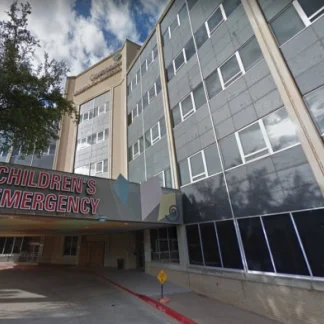Stages of Recovery Addiction Services
Stages of Recovery Addiction Services is a private rehab located in Lubbock, Tex...
Located in Lubbock, Texas, Covenant Medical Center- Lakeside offers alcohol and drug rehab services to those struggling with addiction who are age 18 or older. They provide detox, inpatient treatment, and medication assisted treatment.
This program uses medications administered by trained professionals to help clients manage withdrawal symptoms, cravings, and other challenges associated with detoxing from chemical substances. The purpose is to help provide as much comfort as possible during the process and to create a plan that reduces the chance of relapse.
Inpatient This program offers 24/7 care to individuals who need nursing staff and mental health support while they are treated for their addiction. Access to medical care, psychiatric care, therapists, and group therapy is offered. Individual therapy based on clinically-proven treatment methods is also provided.
Medication Assisted Treatment Clients may participate in treatment that involves FDA-approved medications that help reduce cravings and withdrawal symptoms.
Contact us for more information: (806) 725-6401

Connect with Covenant Medical Center - Lakeside by calling their admissions team directly.
(806) 725-6401 Website Get DirectionsCognitive Behavioral Therapy (CBT) is a therapy modality that focuses on the relationship between one's thoughts, feelings, and behaviors. It is used to establish and allow for healthy responses to thoughts and feelings (instead of unhealthy responses, like using drugs or alcohol). CBT has been proven effective for recovering addicts of all kinds, and is used to strengthen a patient's own self-awareness and ability to self-regulate. CBT allows individuals to monitor their own emotional state, become more adept at communicating with others, and manage stress without needing to engage in substance abuse.
Experiential therapy is a form of therapy in which clients are encouraged to surface and work through subconscious issues by engaging in real-time experiences. Experiential therapy departs from traditional talk therapy by involving the body, and having clients engage in activities, movements, and physical and emotional expression. This can involve role-play or using props (which can include other people). Experiential therapy can help people process trauma, memories, and emotion quickly, deeply, and in a lasting fashion, leading to substantial and impactful healing.
Group therapy is any therapeutic work that happens in a group (not one-on-one). There are a number of different group therapy modalities, including support groups, experiential therapy, psycho-education, and more. Group therapy involves treatment as well as processing interaction between group members.
Nicotine Replacement Therapy (NRT) is a way of getting nicotine into the bloodstream without smoking. It uses products that supply low doses of nicotine to help people stop smoking. The goal of therapy is to cut down on cravings for nicotine and ease the symptoms of nicotine withdrawal.
Experiential therapy is a form of therapy in which clients are encouraged to surface and work through subconscious issues by engaging in real-time experiences. Experiential therapy departs from traditional talk therapy by involving the body, and having clients engage in activities, movements, and physical and emotional expression. This can involve role-play or using props (which can include other people). Experiential therapy can help people process trauma, memories, and emotion quickly, deeply, and in a lasting fashion, leading to substantial and impactful healing.
Group therapy is any therapeutic work that happens in a group (not one-on-one). There are a number of different group therapy modalities, including support groups, experiential therapy, psycho-education, and more. Group therapy involves treatment as well as processing interaction between group members.
Nicotine Replacement Therapy (NRT) is a way of getting nicotine into the bloodstream without smoking. It uses products that supply low doses of nicotine to help people stop smoking. The goal of therapy is to cut down on cravings for nicotine and ease the symptoms of nicotine withdrawal.
Group therapy is any therapeutic work that happens in a group (not one-on-one). There are a number of different group therapy modalities, including support groups, experiential therapy, psycho-education, and more. Group therapy involves treatment as well as processing interaction between group members.
Nicotine Replacement Therapy (NRT) is a way of getting nicotine into the bloodstream without smoking. It uses products that supply low doses of nicotine to help people stop smoking. The goal of therapy is to cut down on cravings for nicotine and ease the symptoms of nicotine withdrawal.
Nicotine Replacement Therapy (NRT) is a way of getting nicotine into the bloodstream without smoking. It uses products that supply low doses of nicotine to help people stop smoking. The goal of therapy is to cut down on cravings for nicotine and ease the symptoms of nicotine withdrawal.
Stages of Recovery Addiction Services is a private rehab located in Lubbock, Tex...
AA – Alcoholics Anonymous – Central Group is a non-profit rehab located in Lubbo...
Plainview Serenity Center is a private rehab located in Lubbock, Texas. Plainvie...
AA – Alcoholics Anonymous – Buddy Holly Avenue is a non-profit rehab located in ...